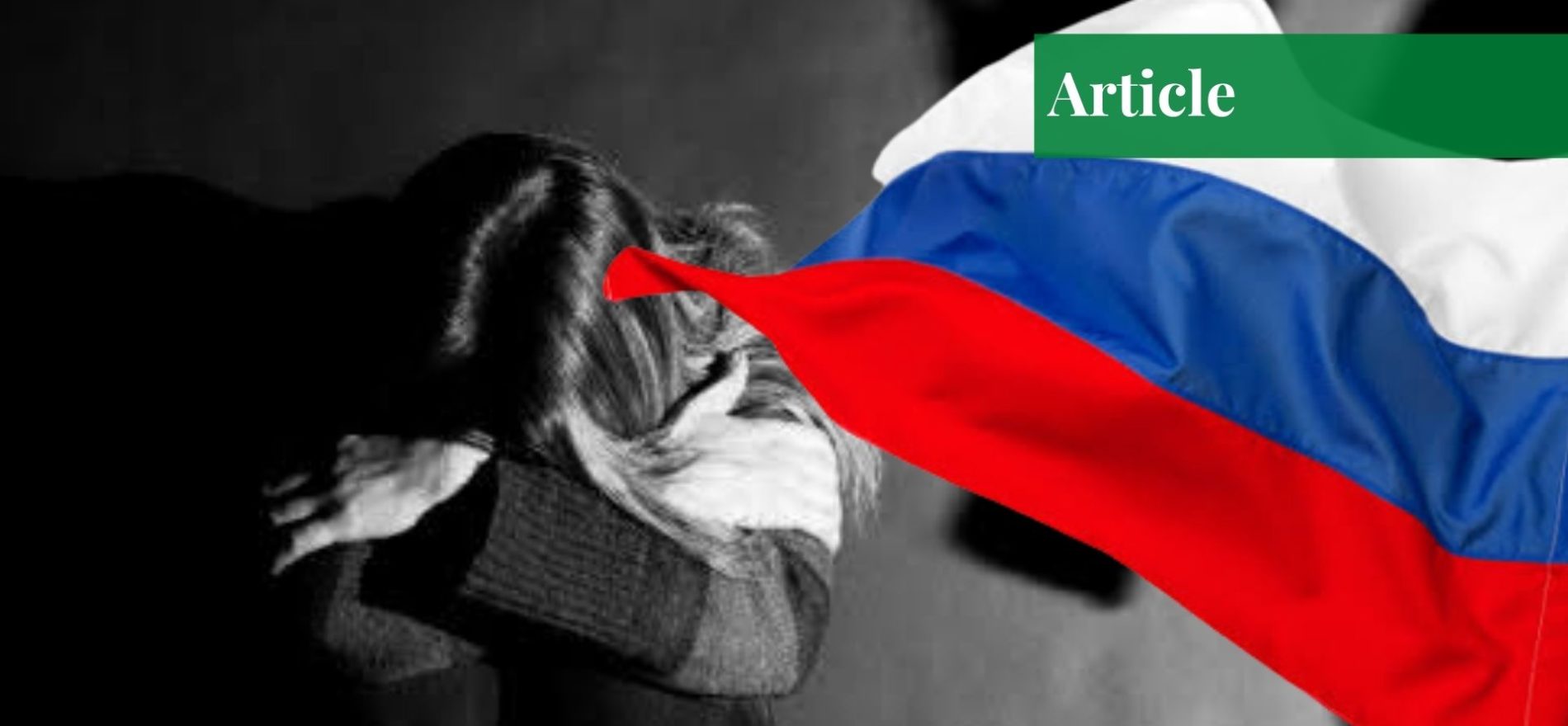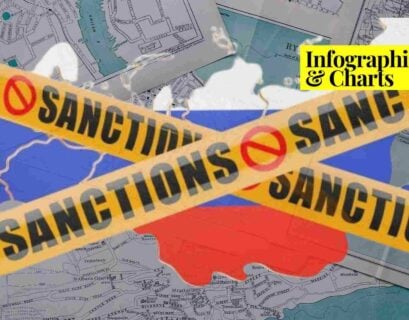Hafsa Ammar is a graduate of the National Defence University, Islamabad. Her areas of expertise are narrative building and propaganda warfare, centered around the Soviet Union and modern-day Russia.
Domestic Violence
Internal matters of Russia have often evaded mainstream media with ease due to Russia’s passive isolation from the West alongside its firm grip on state media. However, domestic violence against women in Russia is an internal fissure that has made its way into the limelight.
Domestic violence is a crime of a particularly horrifying nature as it demands at its core “violence within a close relationship.” It can manifest in various forms, be it physical, verbal, emotional, sexual, or psychological. The harsh reality that accompanies this offense is that women are most likely to serve as its victim, especially when they are the spouse/romantic partner of the abuser.
Approximately 736 million women around the world have experienced harassment and abuse by their significant other or strangers, at least once in their life. In Russia, 14,000 women reportedly die each year as a result of domestic violence. A fifth of all Russian women, more than 8.5 million women, have been subjected to domestic abuse at the hands of a partner.
“If he beats you, it means he loves you.” – An old Russian phrase
Why Domestic Violence Persists in Russia
In comparison to the rest of the world, Russia takes the lead in cases of domestic violence. There are several theories as to what causes the Russian socio-political landscape to breed such hatred and violence. The sociological perspective presented by Emile Durkheim explains the basis of this phenomenon taking place in Russia.
The French sociologist claims in his work “The Division of Social Labor” that society has a powerful influence on individuals, and it molds their beliefs and values into a collective consciousness. So, if women are seen as second-class citizens by those in positions of authority, be it elders, teachers, or politicians, it will become a cognitive truth of the people. It is a constructivist take on a rigid society – women in Russia are as weak and vulnerable as the Russian men believe them to be.
In addition to this sociological molding of society, another major cause of the severe spousal/domestic abuse in Russia is “social disorganization.” It refers to a theory of criminology put forth by the Chicago School which says that the place where a person lives has a significantly larger impact on their link to crime than what their personality would have.
This is an ode to the patriarchal and hegemonic masculinity that exists in Russia, a place where the fate of women is tied not only to their political and economic status but also to their household and relationship standing. The women are bound into their traditional roles of “housekeeper,” leading to a lack of mobility, increased responsibility, and little to no development of economic standing. Women face the same challenges as men, but without the metaphorical rewards at the end that the latter are promised.
The popularity of combative sports has a direct connection to antagonism and assertiveness in a society – the two of the most played sports in Russia are football and ice hockey, both of which are violent and contact-heavy. One of the most well-known guns around the world, the AK-47, or the Kalashnikov has Russian origins.
The image built around the state is so harsh that even the Russian language itself is considered one of the hardest languages to learn even though it is the 7th most spoken language in the world, a statistic not to be taken lightly when put against a population of approximately 8 billion people. The Russian Identity is seen and felt like one of an aggressive nature.
The Failure of the Russian State
The role of the state is the linchpin in this entire discourse of human security within Russia. During the COVID-19 pandemic, states around the world moved to strengthen their domestic violence laws to help safeguard their citizens stuck in unfortunate circumstances. Russia, however, did the opposite. In order to be recognized separately and not fall under the umbrella of the “traditional liberal values” of the West, the state decided to practice its own autonomous foreign policy to stand true to its traditional roots.
With President Vladimir Putin stating that the “so-called liberal idea has outlived its purpose,” the ideas that the traditional roots brought to the ground were of a religious nature. Collectivism was deemed superior to the individualism practiced by the West. This ideology was what led to the most destructive amendment in Russian law.
Russia’s decriminalization of domestic violence in 2017 made it so that any first instance of domestic battery that does not lead to hospitalization i.e., broken bones or bleeding, will be counted as an administrative offense and can be served a fine of 5,000 roubles (first-time offenders) or 30,000 roubles.
Violence: An “Internal” Affair
Domestic violence, or violence inside the four walls of a home, is seen as a family matter by the Russian state. Vitaly Milonov, a Russian far-right politician and Christian fundamentalist, has even said, “While extreme violence should be punished, what happens in the family should be private.” It is laws such as these that provide loopholes within which abusers thrive.
It is the Russian orthodox tradition that calls for silence around family violence. Women in Russia have suffered at the hands of this belief. It turned into normative violence – cultural and structural. The social beliefs and practices shape the mindset of the people. In the contemporary setting, Russian identity exists in a mutually constituent relationship with violence and aggression. It shows in every aspect of their society.
Gender Inequality
Perhaps another obvious cause of spousal violence to this degree is the high level of gender inequality in the state. It brings to light the sociological, political, and economic disparities present between men and women. It ranges anywhere from the protection of rights to wage gaps. The Russian Police or Politsiya is one of the major constructs in society that is working against the Russian women. It does not fulfill its duties to the state or its citizens when it comes to cases of domestic violence.
Take the case of the 23-year-old Vera Pekhteleva who was tortured by her ex-boyfriend in their apartment for over 3 hours. The neighbors kept calling the police repeatedly to no success, by the time the neighbors broke down the door, she was already dead – strangled with the cord of an iron.
She is just one of the thousands of cases that pop up and are ignored every day. She is neither the first to face such horrors nor is she the last. Margarita Gracheva was another Russian wife who suffered the consequences of her gender. Her husband dragged her into the woods and cut off both her hands with an ax, a heinous crime, for which he received only 14 years in jail. She fears for her life to this day.
The list of trauma survivors is long, and what they need is not help, but protection.
“Grief does not demand pity, it requests acknowledgment.” – Jude Gibbs
There is a great need for sanctuaries and service providers in Russia that can give women in need not just brief shelter but give them a multitude of ways to proceed, from police or legal action to physical and psychological medical help.
Domestic violence is a living plague in Russia that just doesn’t have the amount of awareness around it that is needed. In the past decade, there have been significant efforts to shine a light on it. However, there is only so much that social activists and NGOs can do. There needs to be an active participatory role of the government in dealing with this epidemic. Reversal of the decriminalization of domestic violence bill seems to be the first step in a very long road to an equitable and safe society.
If you want to submit your articles, research papers, and book reviews, please check the Submissions page.
The views and opinions expressed in this article/paper are the author’s own and do not necessarily reflect the editorial position of Paradigm Shift.


















